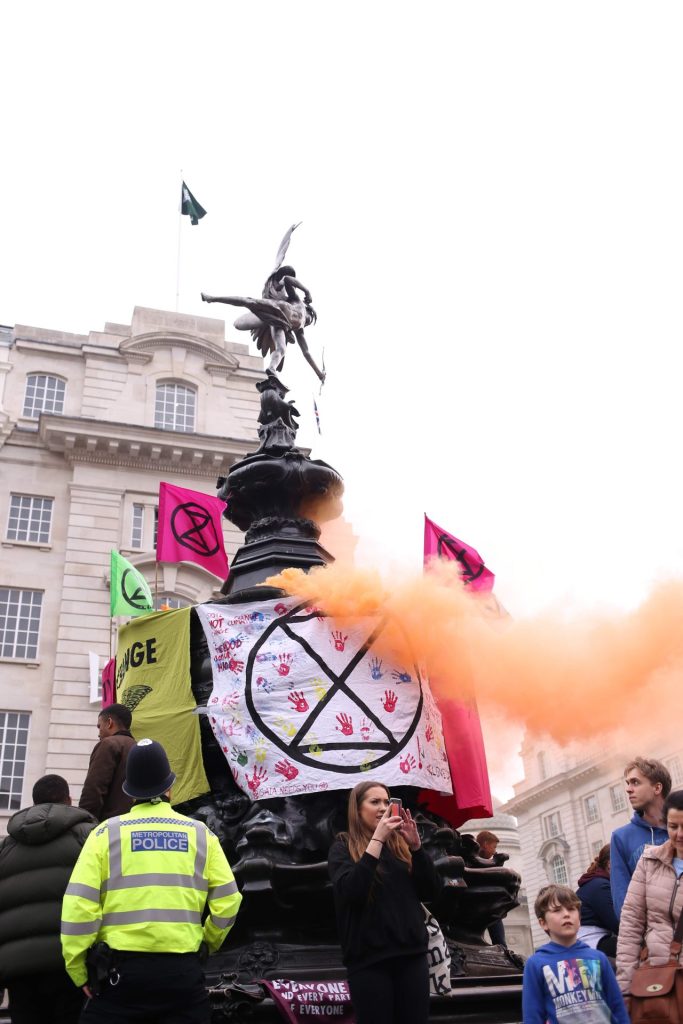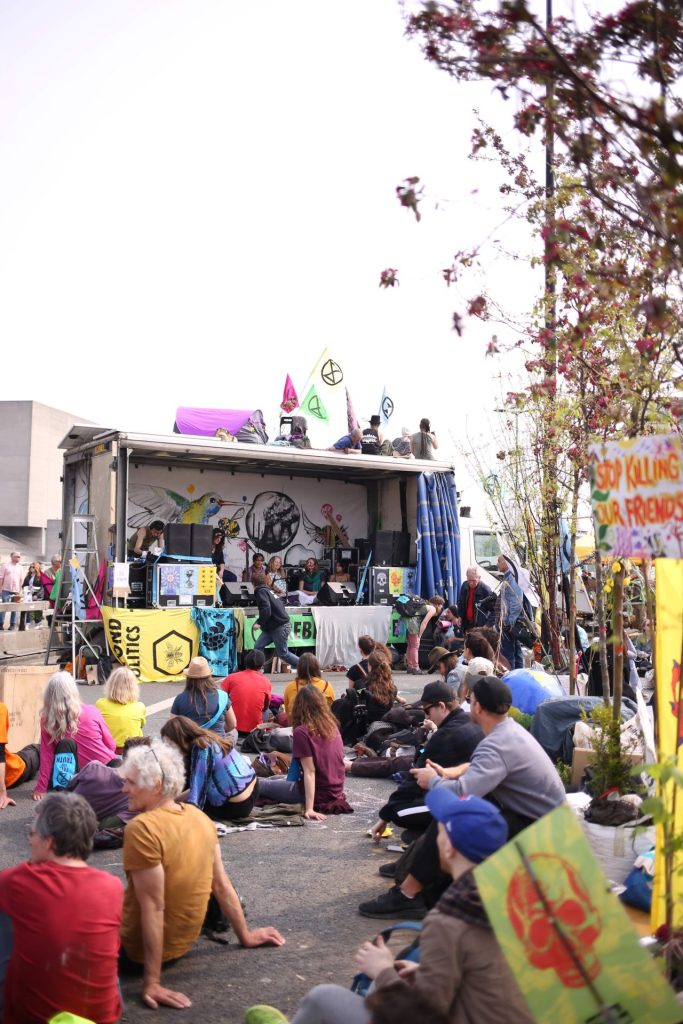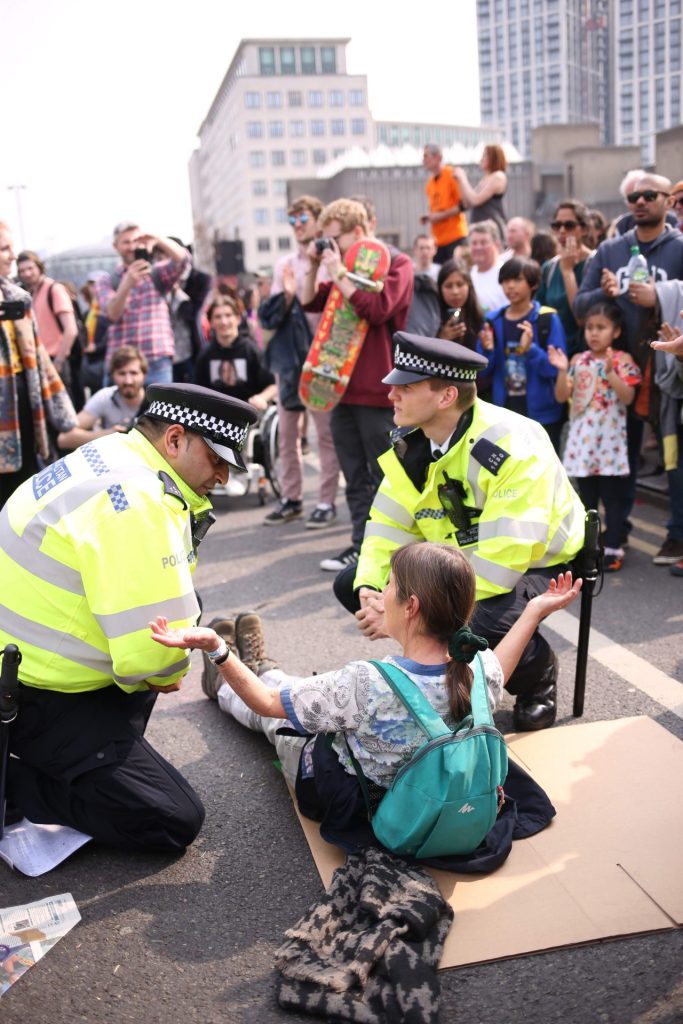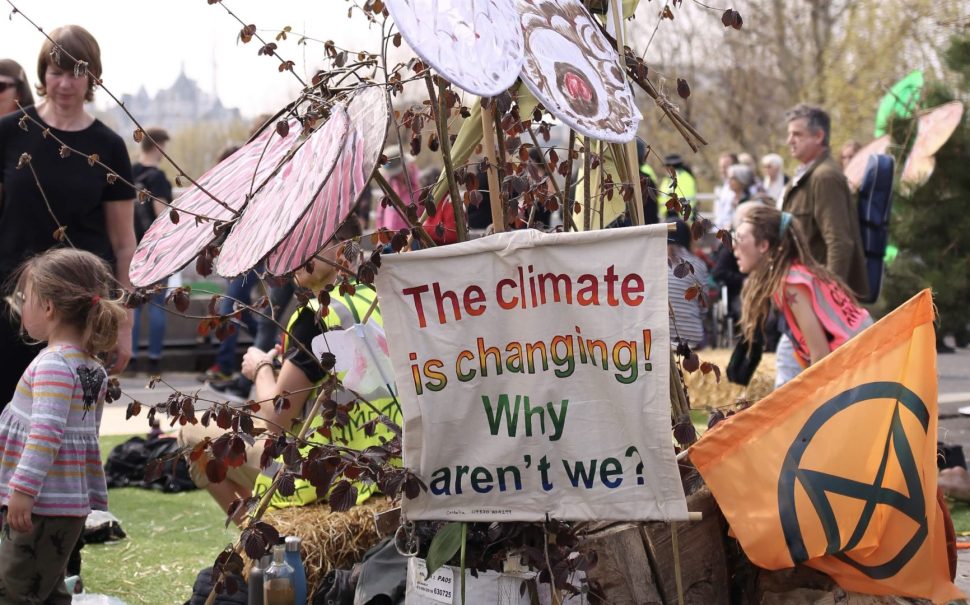Colourful placards, picket lines, workshops and 100,000 people. It seems Extinction Rebellion is planning to leave the paint and glue behind, at an organised peaceful protest outside the Houses of Parliament this month.
The group have labelled the event, taking place 21-24 April, as ‘The Big One’ and it invites everyone to “unite to survive” in non-violent, direct action which will focus on numbers and attendance over disruption.
Just four weeks after seven Extinction Rebellion protestors were arrested for throwing green paint at newspaper offices in London, the climate activism group has assured the public that this four-day action will not include roadblocks, locks, glue or paint of any kind.
So why now, when the stakes of climate change on the environment are so high, has the group opted for a change in tactics?
Yaz Ashmawi, a spokesperson for Extinction Rebellion (XR), described how XR first came out of the fold in 2019 with disruptive, mass protests such as the April Rebellion.
He said: “We needed to get loads of people to come and protest en masse and be really disruptive to the city in order to get attention and raise the alarm.
“In many ways it succeeded in 2019, as at the start of that year it was not conceivable that the UK would declare a climate emergency or set a net zero target or even initiate a citizens assembly on how to reach net zero.
“But at the end of 2019 all of those things happened and it is not a coincidence that those three elements were the demands of XR.”

According to Ashmawi, the group has recognised that the essential ingredient to cutting through to the public and influencing change is simply turning up en masse, without focusing on arrests or disruption.
An alliance of over 130 social, economic and climate activism groups will be present at this event, including Greenpeace and Friends of the Earth.
Dr. Emily Grossman, co-founder of Scientists for XR and acclaimed science author, believes that by moving away from disrupting the public as a primary tactic, Extinction Rebellion has been able to bring together more groups and form a collective alliance against climate breakdown and ecological collapse on a larger scale.
The Intergovernmental Panel on Climate Change (IPCC) released its sixth Assessment Report on 20 March which stated: “The scientific evidence is unequivocal: climate change is a threat to human wellbeing and the health of the planet.
“Any further delay in concerted global action will miss a brief and rapidly closing window to secure a liveable future.”
Dr. Grossman said: “The IPCC has clearly stated that if we don’t act now by steeply cutting emissions, we will take the potential of climate catastrophe to a whole new level.
“With the stakes being so high it’s more important than ever that we now come together, in numbers so huge as to be impossible to ignore, to show the government that we really care about the climate crisis, that we want change, and that we are prepared for it.
“That’s why the change to Extinction Rebellion’s protesting methods – away from disrupting the public and towards prioritising showing a united front with all other movements – is more important than ever right now.”
Representatives from Scientists for XR will be present at The Big One where they will have their own hub to offer four-day’s worth of talks, workshops and ‘Ask a Scientist’ sessions, where the main focus will be education about the climate and ecological emergency.
Cancer Research biologist, Dr Lynn Bjerke, from Scientists for XR said: “I research better treatments for children with brain tumours.
“I’ll be attending The Big One because I feel a duty to act on behalf of all the young people whose futures are in peril due to our inaction on the climate and ecological crises.”

Sophia Cheng, 35, is the founder of With Many Roots, a company that delivers high quality climate education and workshops in and around the Anthropocene.
In 2019, Cheng made the decision to sit in the road outside Downing Street as part of the October Rebellion for XR and was subsequently arrested.
Cheng said resisting the urge to follow police instructions in that moment was incredibly hard, but she explained that in 2019 she felt the climate crisis move from her head to her heart and found the courage within to “look at how bleak our ‘business as usual’ pathway sets us on”.
For this reason, she concluded it was an active decision to be arrested for Extinction Rebellion that day.
Cheng added: “I see this current shift in tactics as adapting with how the conversation around the climate is moving.
“I think it is a beautiful expression of the cross fertilisation that this movement needs to see.
“We are in a democracy and things don’t move forward until the politicians think enough of us care.
“When we have heat waves of plus 40 degrees and the wind is hot in the middle of England, it is just not conceptual anymore.”

Talia Woodin, 23, a former member of XR Youth, said: “I would say right now the movement is more divided than ever.
“So hopefully The Big One will be successful in bringing people onto the streets or just bringing people into the conversation.
“I think a lot the time the problem with movements like XR is that they act as if they’re the only ones doing this work and having these conversations.
“Therefore others feel they need to come into XR’s space in order to be a part of the movement, rather than presenting it as a very broad and diverse movement that has a multitude of different tactics and beliefs involved.
“So it will be interesting to see the lack of XR branding at The Big One.”
XR’s principle demand at The Big One is for the government to implement a citizen-led democracy to address societal issues, such as the climate emergency, which it believes is interconnected with the majority of other social and economic crises.
Over 26,000 people have signed up to take part in the four-day direct action outside Parliament this month which is set to be the largest environmental climate protest since 2019.
Featured image by Talia Woodin





